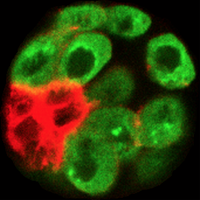
Thomas Scheuerl
@scheuerlthomas
Researcher interested in evolutionary ecology of microbial communities.
ID: 823179533675352064
22-01-2017 14:44:29
80 Tweet
65 Followers
27 Following


Very pleased to see this finally out! cell.com/cell-systems/f… We study convergence and divergence in microbial community assembly in replicate habitats. Work with the marvellous Alvaro Sanchez Lab team @jccvila @mrebolleda Chang-Yu Chang 張昌祐 Alicia SanchezGorostiaga N. Lu & Josh Goldford

Sarah in our Ecosystems and Global Change Group has been working hard on the first major experiment of her #PhD 👩🔬 which will tell us how bacterial communities use different carbon compounds isolated from the natural environment 🦠 The #carboncycle is changing, are #microbes adapting?



Very excited to have been awarded a Marie Skłodowska-Curie Postdoctoral Fellowship, Clear-Water, to study eco-evolution of complex bacterial communities. Thanks Marie Skłodowska-Curie Actions for funding and thanks to my colleagues Ecosystems and Global Change Group & @otto_seppala and collaborators Alvaro Sanchez Lab.

New preprint from 1st-author Chang-Yu Chang 張昌祐. We find that coexisting members of stable bacterial communities generally fail to coexist in pairwise co-culture, highlighting the importance of the ecological context provided by additional community members biorxiv.org/content/10.110…


I am pleased to announce that Tim Barraclough from the University of Oxford is going to give us a talk next Wednesday, the 9nd of November at 2 pm CET, in our Mondsee seminar series. If you are interested, get in touch with me: [email protected]

We will have Kayla King from Oxford next Wednesday in our Seminar series giving us a talk. If interested email me ([email protected]) and I will share the zoom link.










